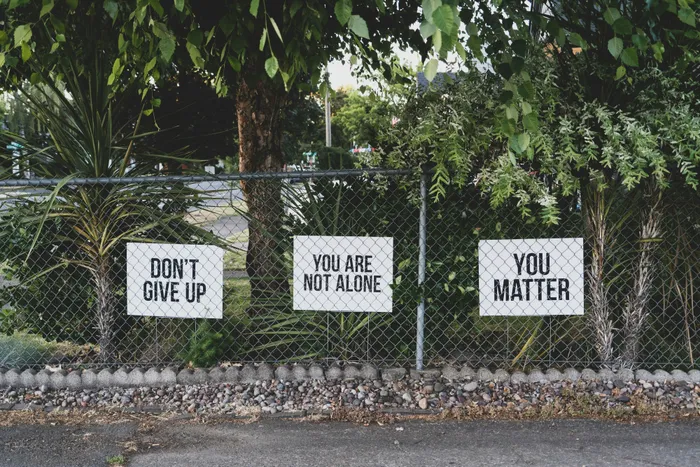Urgent call for mental health support following Durban man’s tragic suicide on bridge

September marks suicide prevention month. According to Netcare Akeso, suicide is the fourth leading cause of death among individuals aged 15 to 24 in South Africa.
Image: Unsplash
Family and friends gathered on Monday for the funeral of a 21-year-old Chatsworth man, two days after he allegedly jumped from a bridge near the Umgeni Interchange in Durban.
The incident has again highlighted South Africa’s growing suicide crisis, particularly among young people. September marks suicide prevention month.
KwaZulu-Natal police confirmed that an inquest docket has been opened. “Police in Sydenham have opened an inquest docket following an incident in which a 21-year-old man allegedly jumped from the bridge and died on 20 September 2025 on the N2 South and M19 split. Circumstances surrounding the incident are being investigated,” said Colonel Robert Netshiunda, KZN police spokesperson.
The name of the deceased is known to The Mercury but is not being disclosed due to the nature of the incident.
Private security and emergency responders attended the scene. KZNVIP reported receiving multiple reports just after 12:30 noon via social media.
“Upon arrival, KZNVIP officers were informed by members of the public that a black TSI VW Polo had pulled over near the bridge and a male exited the vehicle before climbing onto the ledge. Moments later, the individual jumped off as per witnesses who attempted to stop him,” the company said in a statement.
KZNVIP paramedics assessed the individual but declared him deceased. The matter was later handed over to the SAPS for investigation.
Suicide is the fourth leading cause of death among people aged 15 to 24 in South Africa, according to Netcare Akeso.
“Behind every statistic is a person, as well as their family and community, suicide is not an isolated problem, even though for the person with suicidal thoughts it may feel extremely alienating,” said Megan Gonsalves, Crisis Line Manager at Netcare Akeso in a recent media statement.
She said that suicide is closely linked to mental health conditions such as depression, bipolar disorder, and substance use. “Unfortunately, in some homes or workplaces, these topics remain uncomfortable and are often considered off-limits,” she said.
Gonsalves stressed that open conversations are critical in preventing suicide. “To protect the people we value, we need to create supportive environments in our homes, offices, and communities, places where open conversations about mental health are normal and where we feel comfortable bringing up these subjects when someone really needs support.”
She added that professional help can make recovery possible through therapy, coping skills, medication, and support networks.
“Struggling with thoughts of harming yourself or suicide can feel very lonely. It might seem like no one understands or that there is no other way forward for you. But if you are struggling, this is not the end of the road.”
For immediate support, Netcare Akeso operates a 24-hour crisis line on 0861 435 787, while the South African Anxiety and Depression Group (SADAG) runs a suicide crisis helpline on 0800 567 567.
Experts have urged South Africans to speak more openly about mental health. “Preventing suicide is a shared responsibility. When we break the stigma and choose open conversation and compassion over silence, we build spaces where early treatment and support are not just possible, they are expected,” said Gonsalves.
Related Topics: